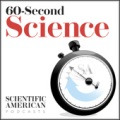
 Every once in a while I have an surreal conversation. The conversation usually begins when a person says something I misunderstand. They claim something and then proceed to tell me about it. I assume that the person in question’s claim is a claim about the universe (I assume that because that’s the place I’m trying to understand). When the surreality begins is when it turns out that they are actually talking about is a part of the world – I guess that’s their perception of it.
Every once in a while I have an surreal conversation. The conversation usually begins when a person says something I misunderstand. They claim something and then proceed to tell me about it. I assume that the person in question’s claim is a claim about the universe (I assume that because that’s the place I’m trying to understand). When the surreality begins is when it turns out that they are actually talking about is a part of the world – I guess that’s their perception of it.
The other day I had one when a friend of mine suggested I read a book called Fringe-ology. He described it as “a good book.”
Was he right? Is Fringe-ology a good book? The title sounded frighteningly unfruitful to me.
The question I then asked myself was: “Must I read it to form my own judgement?”
It was highly rated on Amazon.com (five stars and twenty five reviews). Did that fact make it “a good book?”
The book’s subtitle, How I Tried to Explain Away the Unexplainable-And Couldn’t, didn’t make me want to read it either. Science, as I understand it, isn’t about “explaining away” anything (unless you are speaking metaphorically, which the practice of science certainly doesn’t embrace). And the “unexplainable” is a term that shows some seriously misguided thinking about reality (based on my reading of science history). Perhaps that was just marketing though.
Upon closer examination there is something else that makes me question Fringe-ology being a “good book” – there is a bent spoon on the book’s cover.
That is not a good sign.
To try to convince me to read Fringe-ology: How I Tried to Explain Away the Unexplainable-And Couldn’t my friend said this:
“[the author Steven Volk is a] Hard-nosed news reporter who looks honestly at this stuff. And find he can’t disprove much of it.”
I suggested that no matter how hard one’s proboscis, the act of setting out to disprove something wasn’t science.
My friend then went on to talk about the reams of sworn eyewitness testimony to the existence of UFOs. And that they would be admissible as evidence in a court of law.
I then suggested that “reality is not determined by a judicial process.”
It was at about this point that I twigged to some sort of incommensurability in our communications. I was talking about the world, as discovered by the practice of science, and my friend was talking about some other way of seeing the world (that I think is demonstrably false – but perhaps enjoyable or something).
In the end I may have to accept my friend’s judgement about my character. He said I was a “closed” person. He may be right. I will not read horoscopes, I will not accept sworn eyewitness testimony for paranormal claims, and I don’t expect to be reading Fringe-ology: How I Tried to Explain Away the Unexplainable-And Couldn’t any time soon – at least not without some more compelling reasons than I’ve been given.
There’s another way to put all of the above.
My friend was talking about institutional facts and I was talking about brute facts. He thinks the inexplicable exists, whereas I suggest that a book about the inexplicable is going to be zero pages long.
Which brings me to this extraordinarily boring (but presumably useful to my friend) story from Scientific American’s 60-Second Science podcast: “Moon Not Made of Cheese” – which takes a very pragmatic approach to debunking shitty ideas.
|MP3|
Podcast feed:
http://rss.sciam.com/sciam/60secsciencepodcast
Posted by Jesse Willis
1. It’s notoriously easy to fool people who think of themselves as clever, hard-nosed unbelievers. Tending to that self-image gets in the way of basic stuff like observation, or like wondering how something could be done. So it’s not surprising that the “hard-nosed reporter” would fall for this stuff.
2. Anybody who’s not a magician, a conman, an insurance investigator, or a member of a related performance profession — he’s a rube, not an expert, in this sort of thing. Nobody expects that being a reporter will make you able to beat world class bikers in the Tour de France, or even in your hometown bike race. Yet somehow, they expect that being an expert in a related field makes you able to spot fraud.
“an expert in an unrelated field makes you able to spot fraud.”
Sorry about that.